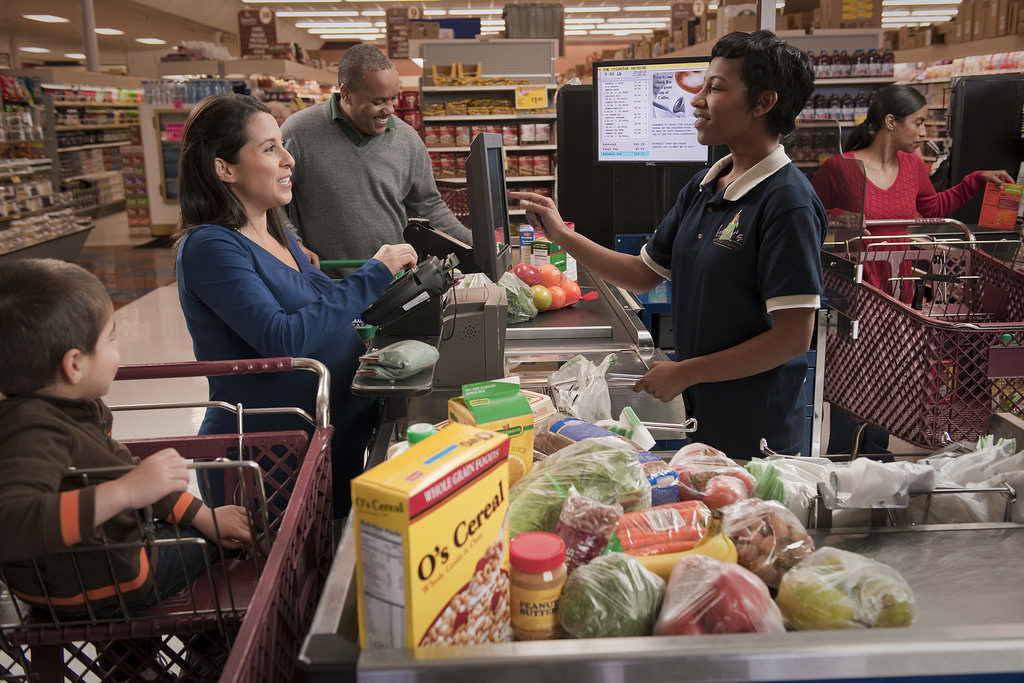
A monogamous spouse stays true to their one-and-only. A cheating spouse has someone else on the side. But if you have several spouses you love equally, you’re not a cheater – you’re polygamous.
And the same applies to grocery shoppers. Well, except for the fact that being a polygamous shopper isn’t illegal.
Few people are fiercely loyal to just one store. But the image of the cherry-picking shopper, chasing deals and visiting whatever store has the best sale prices that week, may not be all that accurate. Because even though the typical shopper visits an average of six different grocery stores over the course of a year, we might be more loyal than those stores give us credit for.
That’s according to “Polygamous Store Loyalties: An Empirical Investigation,” published in the most recent edition of the Journal of Retailing. The study finds that most grocery shoppers visit multiple stores, which would suggest they’re not loyal to any one of them.
But it turns out many shoppers are loyal to certain stores – in certain categories. You may shop at several stores over the course of a week, or a month, but there’s likely one store where you prefer to get your produce, or another store where you typically get your household goods. That doesn’t make you unfaithful to the store you consider your favorite – it makes you polygamous.
“The idea of loyalty to a single ‘primary store’ is giving way to a diversity of stores as consumers are dividing their shopping across retailers and choosing a different favorite in each category,” the researchers write.
The study examined a year’s worth of grocery purchases made by 1,321 households in 284 grocery categories across 14 retail chains in “a large southwestern U.S. city”. It found that only 12 of the households shopped at a single grocery store that year. A few shopped at as many as 13 stores. Most were in the middle, shopping at six different stores over the course of the year.
But they didn’t do all of their shopping for the week across all categories each time they visited a different store. In at least one category, every household in the study bought all of their items exclusively at the same store. So if they prefer to visit one store for produce, for example, then the next time they visit a different store, they just don’t buy any produce there.
The study considers the case of “Jane”, a fictional shopper who “always purchases some categories (e.g., soft drinks) from Albertsons, some categories (e.g., produce) from Safeway, and other categories (e.g., wine) from Whole Foods Market. In other words, Jane is, in fact, loyal to different stores for different product categories.”
So why are shoppers loyal to certain stores for certain categories of products? In some cases, it has to do with quality – a favorite store might have the best, freshest meat and produce, for example. In other cases, it’s selection – stores with the most products in a category tend to earn customer loyalty in that category. And ultimately, price can also be a factor – if one store has the best prices on products in a certain category, why would you want to buy them anywhere else?
Overall, only about 40% of the typical shopper’s total grocery purchases come from their supposed “favorite” store.
The study suggests that retailers can respond by not dismissing polygamous shoppers as unprofitable cherry-pickers. If they lose business to competitors in certain categories, it’s a sign they need to step up their game in those areas. If they already have a shopper’s loyalty in a category, they can reward that shopper with deals and special offers to keep them coming back.
“Consumers have a mind of their own,” said lead author Seethu Seetharaman of Washington University in St. Louis. “They are choosing to do different things in different categories. And businesses should wise up to this.”
So if you spread out your shopping among multiple stores, you’re not alone. And if you’re one of the 12 families who manages to get everything you need at just one store – consider yourself lucky.















